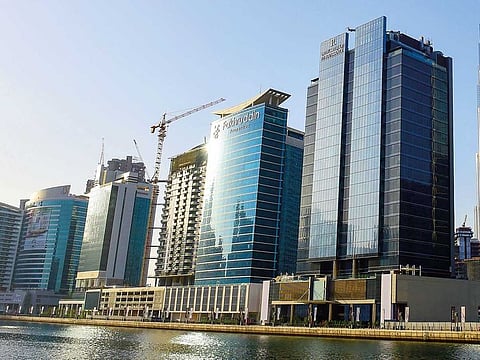Dubai’s dual licensing incentivises office realty
But if done right, this can be as much a boost for demand in free zones in Dubai

Dubai has managed to maintain its reputation as a leader of innovation and development across the region. Its dynamic market creates an environment that makes it one of the most attractive destinations to set up a business.
The country’s visionary policies aimed at creating a diversified economy with an investment-friendly ecosystem led to the introduction of the dual licencing for companies.
In recent months, the Dubai Free Zones (DFZ) Council launched new initiatives that allow foreign free zone companies to extend their operations to the “mainland” without the need to obtain a second license. Currently, free zone authorities which have signed an agreement with Department of Economic Development to offer dual-licenses are DIFC, DWTC, DAFZA and DMCC.
Hopefully, more will follow suit. This move has the potential to transform the business as well as the commercial real estate landscape. This will be the catalyst for increased business activity, which will inevitably lead to a more vibrant and activated commercial real estate market.
Relocation possibilities
Before these initiatives, companies were only allowed to operate and trade within their respective free zones. This change will prompt companies to consider relocating to the mainland areas to take advantage of attractively priced office spaces in areas like Business Bay, Sheikh Zayed Road and other parts of Dubai commercial areas.
Some may argue that dual-licensing may not have a huge impact on office space demand because companies do not have to lease additional office space in the mainland. However, there are companies relocating to the mainland areas to take advantage of strategic locations, attractive pricing, and other advantages that come with strata ownership in areas like Business Bay, which will allow these companies to buy and own their properties.
This is a feat that is not possible in DWTC or DAFZA.
In addition to Dual Licensing, the recently announced initiative to allow 100 per cent ownership of onshore companies (for 122 economic activities across 13 sectors) will have a huge impact on overall demand for commercial real estate in the main business districts.
One ‘passport’
In what may be perceived as a response to these new developments, the DFZ Council announced a plan to launch a “One free zone passport” to further incentivise companies to remain in the free zones. This initiative would allow companies licensed at a single free zone to also operate in other free zones in the Emirate, without the need for a second license.
This will provide greater flexibility as to where the companies can rent office space, leading to more competitive rent options across all different free zones.
We’ve also seen some free zones coming up with novel ideas such as revising rates, fees and other terms to retain existing tenants and attract more companies amid growing competition. The dual licensing brings with itself many options for commercial ventures, and it is definitely a smart choice to invest in two contrasting projects than one at the same time.
Surely, this means more exposure to various industries, and a fewer chance of loss in business.
In summation, the 100 per cent ownership of companies on the mainland, dual licensing and the proposed “one free zone passport” will lead to ease of setting up and conducting business. These automatically translate into increased demand for office space and other commercial property types.
The admirable initiative is hopefully going to bring greater value to the economy in general.
Firas Al Msaddi is CEO of fam Properties.



